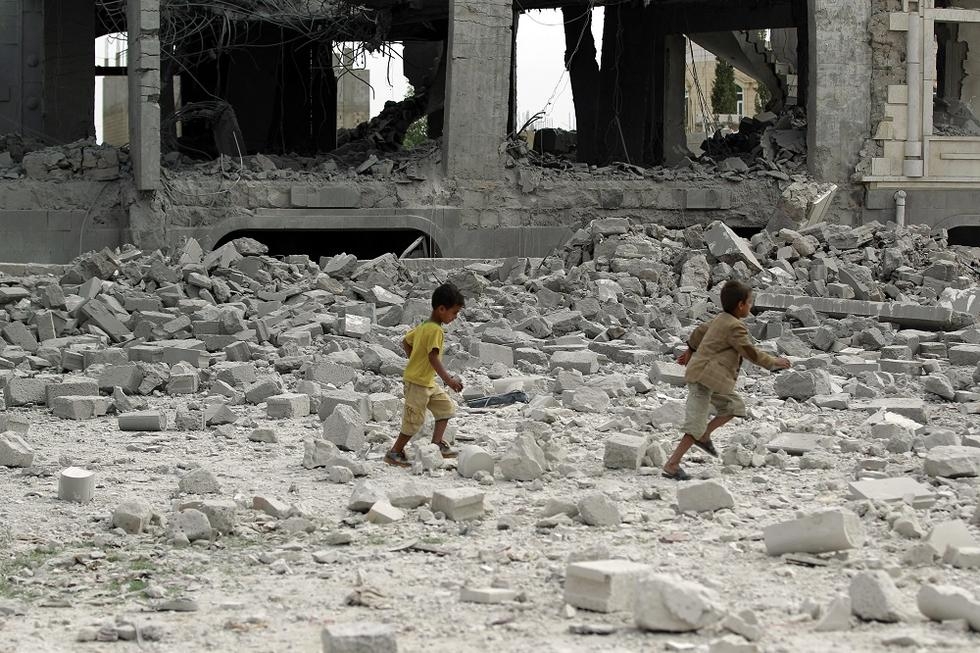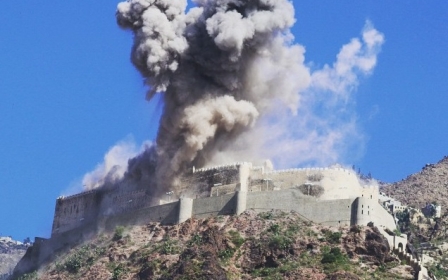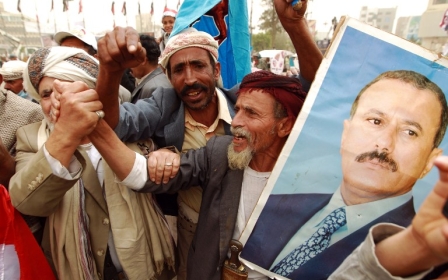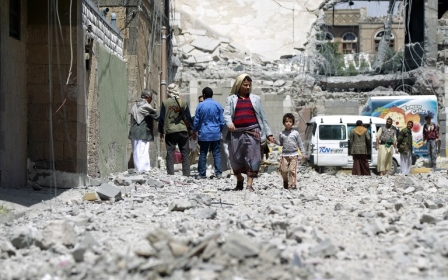Tensions in Yemen high ahead of Geneva peace talks

Yemen's warring factions are preparing for UN-backed peace talks slated to kick off in Geneva this Sunday but with fighting ongoing, expectations about a reaching a lasting deal are not high.
The talks will be the first bid to break a deadlock between the Houthi militias – backed by forces loyal to former President Ali Abdullah Saleh – and President Abd Rabbuh Mansour Hadi, who is supported by the Saudi-led coalition of mainly Arab states that began an aerial bombing campaign against the Houthis back in March.
Fourteen Yemeni representatives - seven from each side of the conflict - will take part in the negotiations, expected to last two to three days.
Despite a fierce campaign of airstrikes that has dealt heavy losses to the Houthis, the Saudi-led coalition has failed to alter the balance of power in Yemen. The Houthis, meanwhile, have held onto territory they have seized but failed to expand and cement their control across the entire country.
Analysts say that by agreeing to the talks, both sides have shown they are now looking for a way out.
"The war in Yemen, which is a civil war, has reached a deadlock," said Ibrahim Sharqieh, deputy director of the Brookings Doha Center, adding that he believed both sides were ready to "make concessions and achieve a result".
"Two-and-a-half months after the start of the air campaign, the Saudis' failures to make additional gains and their inability to wage a ground operation means that, for them, the war has approached its end," he told AFP.
The Houthis meanwhile have failed "to obtain the kind of support from Iran that would shift the equation" so are also looking for a way out, he added.
UN chief Ban Ki-moon, who will attend the opening session on Sunday, has urged all sides to head to Geneva without preconditions.
He said the talks were aimed at securing a ceasefire, agreeing on a withdrawal plan for the Houthis and stepping up humanitarian aid deliveries.
However, the Saudi-led coalition has said that it will stay firm and continue its bombardment until a UN resolution calling for a rebel pullback takes effect, Qatar's foreign minister said on Thursday.
"The coalition will not be over without the application of the related Security Council resolutions and especially the Resolution 2216," Khalid al-Attiyah said after chairing a meeting of his counterparts from the six-nation Gulf Cooperation Council (GCC).
That resolution, issued in April, calls on the Houthis to relinquish territory they have seized, something that the Houthis have thus far appeared loathed to do.
It also asks all parties, particularly the Houthis, to adhere to measures including the outcome of an earlier "national dialogue" tasked with drawing up a new constitution.
Hadi's government meanwhile - which will be represented in Geneva by Foreign Minister Riyadh Yassin - has said that the talks are merely "consultative" and aimed at implementing the UN resolution.
In recent days, there has been no light up in fighting.
Medecins Sans Frontiers said that on Wednesday the organisation treated 130 injured people, including women and children, in Aden as a result of heavy shelling on the al-Basateen residential area.
“In the last 36 hours we have received more than 130 injured, mostly from al-Basateen, after the residential area was shelled, including an attack on a funeral in the area,” said Thierry Goffeau, MSF’s project coordinator in Aden.
“Hospitals in Aden are full, some are placing mattresses in front of their front gates to accommodate patients. Daily fighting and airstrikes are still heavy and we are concerned for patients who are unable to access care, while patients who are already in hospitals are too scared to leave.”
The United Nations has described the humanitarian situation in Yemen as "catastrophic," saying that more than 2,200 people, mainly civilians, have been killed in fighting and raids since March.
More than half a million people have been forced from their homes and 80 percent of the already impoverished country's population is in need of urgent aid.
A five-day ceasefire last month allowed aid agencies to reach civilians caught in the fighting but UN efforts to prolong the truce failed.
A coalition of 13 aid organisations on Thursday called for all sides to ensure that a more durable ceasefire be secured at the Geneva talks.
The relief groups also said that an air and sea blockade, imposed by the Saudi-led coalition, must be lifted.
"What Yemen urgently needs is a permanent ceasefire, an end to the Saudi-led commercial blockade," the groups said in a statement Thursday.
They also called for "an end to arms transfers to those responsible for breaches of international humanitarian law, and a sizeable increase in humanitarian and longer term development funding."
New MEE newsletter: Jerusalem Dispatch
Sign up to get the latest insights and analysis on Israel-Palestine, alongside Turkey Unpacked and other MEE newsletters
Middle East Eye delivers independent and unrivalled coverage and analysis of the Middle East, North Africa and beyond. To learn more about republishing this content and the associated fees, please fill out this form. More about MEE can be found here.




